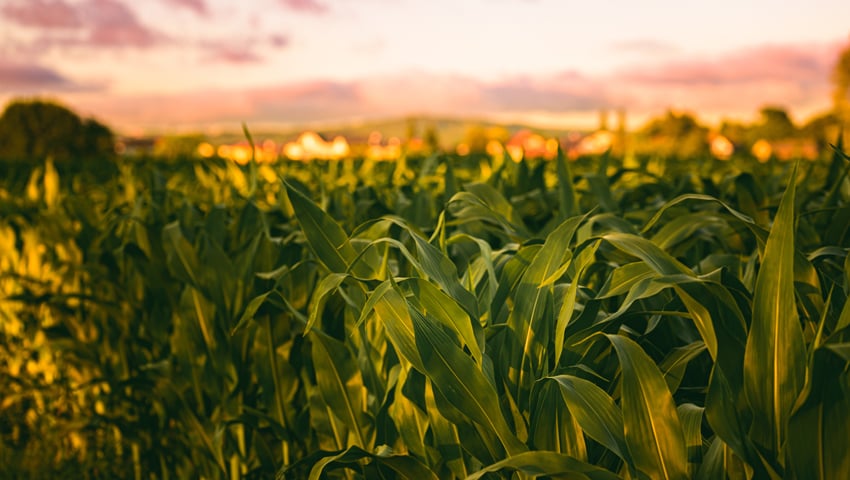The Environment Agency has launched a campaign to highlight the risks of growing high-risk crops, which can lead to pollution and flooding, in the South West of England
Parts of Cornwall and north and east Devon are considered at risk due to underlying soil types, slope and proximity to sensitive watercourses, roads and properties. Inadequate management of high-risk crops on these soil types can cause serious flooding and pollution, affecting nearby properties and wildlife.
These high-risk crops, as classified by the Department for Environment, Food and Rural Affairs, include maize, fodder beet, potatoes and other root vegetables.
Farmers who grow maize and other high-risk crops in Devon and Cornwall should take reasonable measures to prevent soil-erosion and muddy run-off, says the Environment Agency. Enforcement action could be considered if it is found such measures have not been taken.
When large areas of light soils are bare for long periods of time, particularly in the spring and early summer, they are vulnerable during heavy rainfall events. Light soils are prone to capping which reduces infiltration and increases the likelihood of flooding and pollution incidents associated with agricultural run-off on steep slopes.
Heavy clay soils and the slowly-draining soils that are either over deep clay or influenced by groundwater, lie naturally wet near the surface for long periods. These soils are at high-risk of compaction and run-off.
James Wimpress, land management project manager for the Environment Agency in Devon and Cornwall, said, “The farming industry has made good progress in dealing with problems associated with run-off, but more frequent extreme weather means that further action must be taken to prevent flooding and pollution in the future.
“We want to raise awareness of how devastating flooding is when exacerbated by the production of high-risk crops in unsuitable locations, so farmers can make more sustainable decisions in line with our changing climate.”
This is part of the Environment Agency’s plan to protect and enhance the environment as a whole and contribute to sustainable development. By 2025, it aims to create more climate-resilient places and infrastructure by ensuring the nation is prepared for flooding, coastal-change and drought. Field selection for the growing of high-risk crops is key to achieving this aim.
If farmers continue to grow high-risk crops in certain locations, they will need to develop site specific measures to prevent soil-erosion and run-off. The measures must be resilient to heavy rainfall and periods of prolonged wet weather.
An NFU spokesperson said, “Investing in and protecting soil health is crucial to the nation’s farming systems and is essential to British food production. Healthy soil delivers in reducing flood risk, supporting wildlife habitats and biodiversity, and the sequestration and storage of carbon.
“Any proactive advice that can support farmers and land managers in delivering these objectives is welcomed, while also enabling farmers to produce the crops the market requires. This should be about an enabling, supportive approach recognising the challenges of producing food alongside farmers protecting their crucial asset, soil.”
If a run-off incident occurs because preventative measures have not been taken or fail, the Environment Agency will likely take enforcement action against those responsible.
